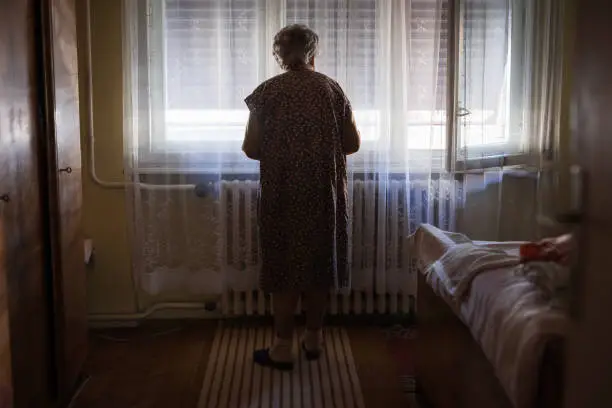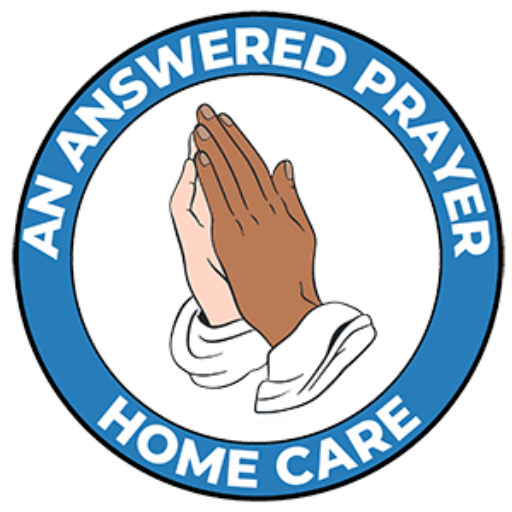Nearly 11 million Americans need to provide unpaid care for a family member or relative living with dementia. In Pennsylvania, one caregiver usually gives around 822,000,000 hours of unpaid care. However, caring for someone with dementia is no easy task. It can take a toll on their physical and mental health, especially when trying to juggle between the caregiving role and personal life outside caregiving. Hence why, it’s unsurprising that a lot of unpaid caregivers are suffering from chronic disease, depression, and poor physical health.
Here, we’ll help you understand what dementia is and assure you that in-home dementia care can help.
Understanding Dementia and its Challenges

What is Dementia?
If you’ve cared for a loved one with dementia, you may already be familiar with the term. However, most people mistakenly use the terms dementia and Alzheimer’s interchangeably when, in fact, dementia is an umbrella term for conditions that affect the ability to process thoughts and perform daily activities.
Alzheimer’s disease is just one type of dementia, though it is the most common. Other types of dementia include vascular dementia, dementia with Lewy body, frontotemporal dementia, mixed dementia, and young onset dementia, each with its own causes and symptoms.
Challenges Families Face in Dementia Care
Let’s be honest: caring for someone with dementia can be challenging. Even in its mildest form, a person with dementia will show signs of forgetting things and being confused even in familiar places. Eventually, they will gradually lose their ability and show some personality changes, making the caregiving journey full of ups and downs both physically and emotionally.
Benefits of In-home Dementia Care
Personalized Support in a Familiar Environment
People with dementia need familiarity as changes in environment and routines can be disorienting and stressful. That is why opting for in-home dementia care for your loved one can be beneficial. With personalized support tailored to personal needs, your loved one can maintain routines in the familiarity and comfort of home, fostering a sense of stability crucial for well-being.
Another significant benefit of in-home dementia care is the one-on-one support that allows undivided attention to your loved one’s unique needs and conditions, unlike those of institutional settings. With that, care can be adjusted according to the evolving nature of the condition. For example, if your loved one can no longer care for their pet, assistance can be gradually added to their care plan.
Promotes Safety and Independence

The next benefit is it ensures the safety of elderly with dementia who are at higher risk of wandering, or worse, falls and other accidents. To prevent that, professional caregivers will help modify the home environment by removing hazards, installing safety measures, and providing supervision so you can rest assured knowing your loved one is safe.
Though safety is the top priority, in-home care does not take away your loved one’s independence. Instead, it encourages your loved one to do as much as possible and assist with daily tasks when needed rather than taking over completely. This kind of approach aims to preserve self-confidence and dignity.
Relief for Family Caregivers
As we stated earlier, caring for someone with dementia is undoubtedly no ride in the park. It can be physically and mentally exhausting. While most family caregivers take on the role out of love and devotion, the stress that comes with it doesn’t just magically disappear. Before that leads to burnout, you should consider in-home dementia care to help you rest and focus on your well-being while your loved one is having the best possible care.
When you have someone to step into your role, you have more time for personal responsibilities, relationships, and self-care. If all aspects of your life are in order, you’ll have more capacity to spend more meaningful, stress-free quality time together with your loved one and other family members rather than stressing about the responsibility.
Key Components of Effective In-Home Dementia Care
Daily Living Assistance
As the condition progresses, what may start as once-seemingly harmless forgetfulness may be followed by a struggle with daily routines such as personal care, meal preparation, and more. In order for in-home dementia care to be effective, assistance with daily living should be in place to safely and comfortably maintain structured routines while preserving as much independence as possible.
Cognitive Engagement
Just like the body, keeping the mind active will help it become healthier and slow its decline. The easiest way to do that is to incorporate memory games like puzzles and board games into daily routines, which are known to stimulate the brain, improve memory recall, and maintain mental agility. However, if one day is not a good day to play games, other alternatives may include reminiscing about the old days through photos or listening to music.
Behavioral Management
Mood swings, confusion, personality changes, or even aggression are not deliberate actions but are part of the dementia condition. Through special training and experiences, professional caregivers have a deep understanding of this and know how to manage behavioral changes with patience, reassurance, and redirection techniques to de-escalate the situation and maintain a calm and supportive environment.
24/7 Availability
Since dementia-related symptoms, such as confusion and infamous wandering, can occur at any time, having 24/7 in-home dementia care makes sure your loved one is continuously monitored and safe. The constant supervision provided will reduce the risk of getting lost, falls, or worse, injuries that may easily happen when your loved one lives alone or with someone who has to juggle personal life and caregiving. This round-the-clock support not only enhances safety but also peace of mind, knowing your loved one is safe.
End Note
It’d be lying to say that caring for a loved one with dementia is easy. Luckily, the right support of in-home dementia care can make all the difference. This type of care will provide your loved one with personalized assistance, cognitive engagement, and behavioral management 24 hours a day, 7 days a week, or however long you need it to be, giving you peace of mind knowing your loved one is being cared for in a familiar environment.
Learn how An Answered Prayer Home Care can support your dementia loved one. Reach out to our team today.

